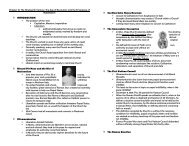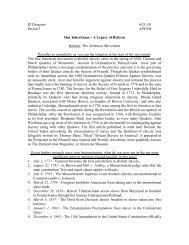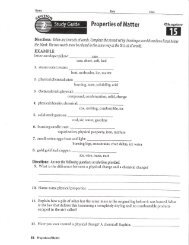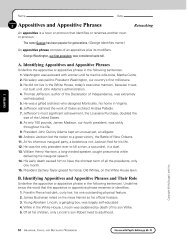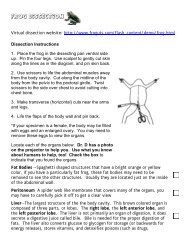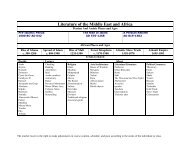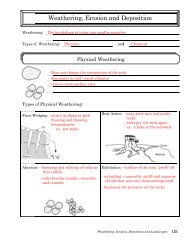Tarbiyah Project
Tarbiyah Project
Tarbiyah Project
Create successful ePaper yourself
Turn your PDF publications into a flip-book with our unique Google optimized e-Paper software.
Virtues ( rº ŒZ wf£… ). Virtuous conduct and character<br />
development is the heart of Islamic education, the central<br />
purpose of Islam, and the mission of our Noble Prophet ().<br />
To elucidate this, the Holy Prophet said, “Verily, I was sent to<br />
foster noble character.” The key focus of Islamic education<br />
must therefore be the teaching of values.<br />
Prohibitions ( \£ˆ` ßZz Æ¡ZefiZ ). Along with learning about the<br />
virtuous qualities that a Muslim seeks to acquire, students<br />
must also be taught about the immoral qualities and<br />
prohibited actions that a Muslim must avoid in life. Students<br />
must be led to internalize the belief that a Muslim’s life, and<br />
Muslim society, can only flourish and develop by shunning<br />
such immoral and prohibited actions.<br />
Manners & Etiquette ( t´ –Zz [Zd Z ). Proper Islamic manners<br />
and etiquette are another essential component of a<br />
comprehensive tarbiyah program. The proper etiquette of<br />
talking, greeting others, eating, etc. are a sign of a welleducated<br />
and refined human being. Nowadays, however, most<br />
of our children learn these manners from their friends,<br />
television and popular culture. With the breakdown of<br />
traditional family values, it is essential that Islamic etiquette<br />
be taught as an integral part of a comprehensive tarbiyah<br />
program.<br />
Feelings ( fi £†ßZ ). Equally important, a successful tarbiyah<br />
program must provide opportunities for Muslim children to<br />
talk openly about their feelings—feelings of love, happiness,<br />
fear, anger, loneliness, etc. This has not been a formal part of<br />
the curriculum of Islamic education—and why we lose the<br />
interest of many of our children. Wholesome and genuine<br />
moral development only occurs in an atmosphere of support<br />
and acceptance. Through the tarbiyah approach, Muslim<br />
children can be free to express their feelings—and in the<br />
process learn how to deal constructively with their many<br />
feelings and emotions in a way that best serves them<br />
individually and collectively as Muslims.<br />
Attitudes ( \£ fi‡¥Zz ˆ £„ßZ ). Attitudes are another important<br />
part of a comprehensive tarbiyah program, since they<br />
influence and direct a person’s behavior. No tarbiyah program<br />
can be complete without a discussion of Islamic attitudes on<br />
such issues as war, violence, sin, guilt, oppression, dating,<br />
abortion, etc. It is through a discussion of these types of real<br />
issues that Muslim children will see and believe that Islam is<br />
relevant to their personal lives.<br />
Moral Literacy Skills ( ˆ” “Z ˆ ´¥Z ). The goal of education is<br />
to train children to be capable of functioning successfully in<br />
life when they grow up. As the world becomes increasingly<br />
more complex, Muslim children will need a set of critical<br />
skills that will allow them to survive Islamically in the society<br />
Towards a Renewed Vision of Islamic Education<br />
Page 7




